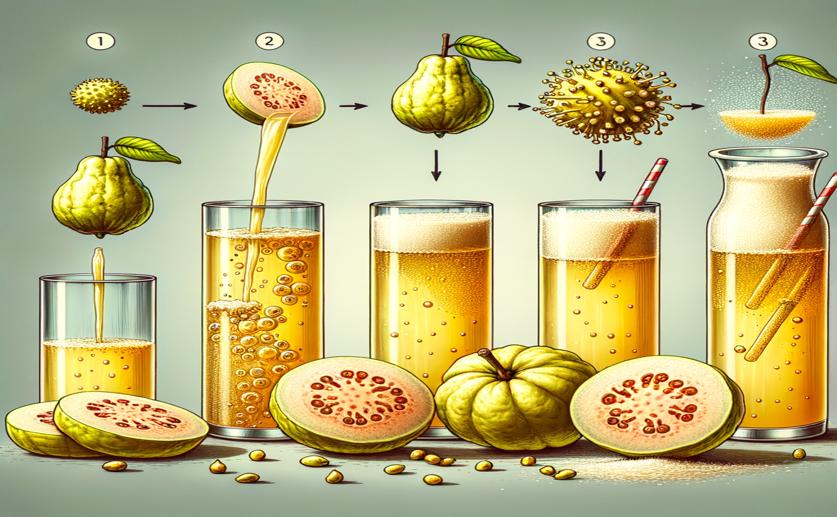
Boosting Vitamin B12 in Guava Juice Through Lactic Acid Fermentation
Jim Crocker
17th July, 2024

Image Source: Natural Science News, 2024
Key Findings
- Researchers at Sharda University fermented guava juice with the probiotic strain L. brevis KU15152 to enhance its nutritional properties
- The fermentation process significantly increased vitamin B12 levels, reaching 109.5 μg L^-1 at 72 hours
- The fermented guava juice also showed higher antioxidant activity and phenolic compound levels, improving its health benefits
References
Main Study
1) Biofortification, metabolomic profiling and quantitative analysis of vitamin B12 enrichment in guava juice via lactic acid fermentation using Levilactobacillus brevis strain KU15152.
Published 16th July, 2024
https://doi.org/10.1002/jsfa.13741
Related Studies
2) Protective Effects of a Novel Lactobacillus brevis Strain with Probiotic Characteristics against Staphylococcus aureus Lipoteichoic Acid-Induced Intestinal Inflammatory Response.
3) Neuroprotective Effects of Heat-Killed Levilactobacillus brevis KU15152 on H2O2-Induced Oxidative Stress.
4) Use of a Potential Probiotic, Lactobacillus plantarum L7, for the Preparation of a Rice-Based Fermented Beverage.



 1st March, 2024 | Greg Howard
1st March, 2024 | Greg Howard